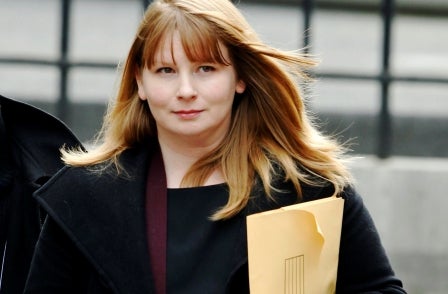
So The Sun genuinely believes the NUJ is backing Stalinist-style state control of the press?
That the NUJ is hellbent on surrendering centuries of hard-won press freedom because what we really want is a Zimbabwe-style clampdown on free speech, where journalists are routinely monstered by Mugabe-esque state stooges dictating what can or can’t appear in the pages of our press? That as general secretary of the NUJ, I’ve now officially reached the dizzy heights of the most dangerous union leader in Britain?
Do they really believe all of this? Or is this just part of the orchestrated and pretty predictable campaign the industry owners and editors are currently running in advance of the publication of the Leveson report, funded and motivated by the deep pockets and vested interests of those with who fear that they’ll no longer be able to get away with a form of self-regulation that has existed merely to serve their own interests for years?
Of course saying that Rupert and his pals in the industry don’t much like the NUJ’s position doesn’t make for the same overblown and hysterical copy in the pages of his own newspaper. And spelling out the truth about the NUJ’s position would be far too inconvenient, as many truths are.
The NUJ is not advocating state control of the press – far from it. We want to ensure that the press can operate under a form of regulation that is independent of government and – critically – free from the control of the industry owners and editors.
For years the union has been campaigning for reform of the Press Complaints Commission, and three years ago the union’s delegate meeting voted to campaign for its abolition as an organisation that was beyond repair.
The NUJ has long campaigned for a system of press regulation that includes involvement of journalists – the present PCC has never represented journalists’ views and neither will the PCC Mark 2 proposed by Lords Black and Hunt.
The union has always argued that the media must be accountable to the public and that journalistic ethics, upholding our Code of Conduct, are vital.
We have demanded for many years a Conscience Clause to be inserted in journalists’ contracts so that when journalists stand up on a principle of journalistic ethics, when they object to being pressured to write something they believe to be wrong or unethical, they can refuse without risking being sacked for their trouble – something the industry has long refused, but which even Rupert Murdoch, under cross examination from the NUJ’s counsel at Leveson, had to concede was a “good idea”.
In fleshing out the model the NUJ wanted to see replace the PCC we didn’t need to look far for a system that has much to recommend it.
The NUJ represents journalists across the UK and also in Ireland. The Irish system of regulation is made up of a Press Council and Ombudsman, and journalists through the NUJ are represented within the council, together with the industry and members of the public. It’s a co-regulatory system that works.
We believe that any new system of regulation has to be one that all members of the press are party to – otherwise you end up with the same situation of one newspaper group or other walking out of a voluntary system as happened with Richard Desmond and his titles.
It’s also important any new body has the powers of investigation and can levy fines if necessary.
What is the alternative being proposed? There is the slightly beefed-up PCC in the Hunt/Black plan including commercial contracts, which will be totally unworkable.
And then there is the plan by Paul Dacre for the body to be the one which issues press cards – and which shifts the responsibility for good and bad practice from the industry to the individual journalist, with the power to withdraw a press card and a livelihood at will. Do you want the editor of the Daily Mail to decide whether you are a journalist or not?
To achieve a robust, independent and meaningful press regulatory body, its terms of reference, who is represented on it, and its constitution will require statutory underpinning. This is not the same a state control of the press – far from it.
Right from the outset of the Inquiry I asked members to get involved and have their say.
One important contribution was collecting evidence from our members on the level of bullying in newsrooms. We set up an email address for all members to contribute to the debate. There has been lots of engagement and response from members. Members throughout the union have organised meetings to discuss Leveson, its modules and the NUJ’s input and submissions, there has been extensive coverage in our union magazine The Journalist and in our newsletters to members.
At the NUJ’s recent delegate meeting in Newcastle, (at which motions set down by members throughout the union were debated and decided upon) the union’s was fully and unanimously endorsed.
All of our submissions to Leveson have been widely published and reported on – including in the pages of Press Gazette – during the course of the inquiry.
Nothing new has been issued by the NUJ that would have led to the furore breaking out yesterday. But the timing is clearly quite deliberate as we gear up to the publication of Leveson’s findings. For those who want to read more about the NUJ’s submissions, please have a look at the Leveson section on our website.
The real debate of course will begin when Lord Leveson produces his report and the proprietors and their allies are forced to expose their real interest in avoiding responsibility for what they do. That will be a public debate worth having, and the NUJ looks forward to playing a full part in that discussion.
Email pged@pressgazette.co.uk to point out mistakes, provide story tips or send in a letter for publication on our "Letters Page" blog
